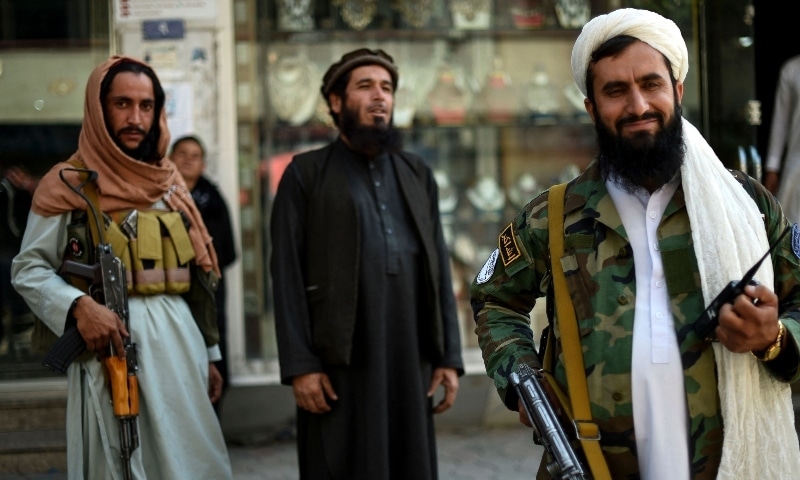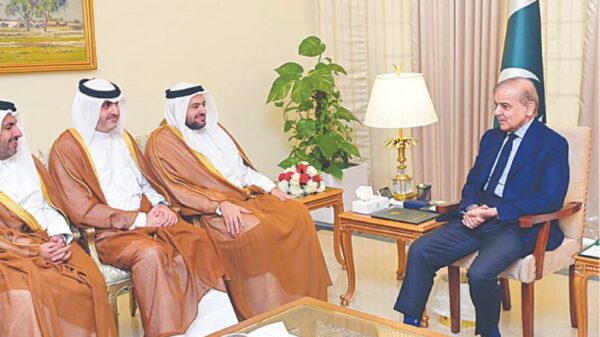Afghanistan’s powerful Haqqani network appears to be heading up a hard-core Taliban faction dead set against the formation of an inclusive government in the country, The Truth International (TTI) can report based on background discussions.
Taliban sources from Kabul say discussions over the question devolved into a heated exchange between Mullah Abdul Ghani Baradar and the Haqqanis at at the Presidential Palace in Kabul also known as Arg.
Baradar believed that the Afghan Taliban would have to address the concerns of the international community, but the Haqqani network, which disagreed with him, believed that the Taliban had won the war, so the outside world had no right to make suggestions or demands.
Apparently Baradar – a leading luminary of the Taliban-US talks at Doha, Qatar – believes the Taliban have a responsibility to honour the explicit and implicit covenants the Qatar-based envoys made with the world during the long drawn out talks.
Following the heated exchange at Arg, Baradar seems to have made himself scarce for a few days, sending the rumour mill in overdrive.
Mullah Baradar must find himself in the middle of a catch 22. The leaders of the international community, including the United States, China, and Russia, who he spoke to, obviously must have relied on his promises to support the Taliban.
There is no doubt that the Taliban leadership at Kandahar has great respect for Mullah Abdul Ghani Baradar, but on the other hand, the Haqqani group led by Khalil Haqqani also wields enormous influence with the Taliban.
From ordinary fighters to commanders, the Taliban agree with the idea that the system and the people against whom they fought for twenty years, including many against whom they fought even before the arrival of the United States, cannot participate in their government.
The majority of the Taliban look at the idea of an inclusive government as a betrayal of the Taliban blood. They support Khalil Haqqani on this count.
Baradar’s visit to Kandahar was also a link in the chain of lobbying for himself in the birthplace of the Taliban. He was there to softly register his protest against this only Taliban-centric system and to convince members of the central shura to get their support.
But while recording a video message against the rumours that had been killed by Haqqani during the heated debate, his lips and body language confirmed the gossip that the matter was temporarily suppressed but everything was still not right for him.
These political differences are also affecting the capital Kabul. If the ministers are old, then obviously the expectations will be the old ones. So this time both the bottle and the wine are old.
Abdul Ghani Baradar also expressed these concerns at the presidential palace. The expansion of interim cabinet with the inclusion of recent names is a manifestation of these facts. There are some names, which were excluded from the list previously, and Iran was unhappy with that.
Recently, people protested against removal of Governor Haji Usman Turabi in the Kunar province. The Governor resisted his removal. Now the former Taliban leaders are back in the driving seat expecting the same old days of power, and are now wondering what to do and how to do it.
The same confusion is in their policy towards women’s rights. They have instructed working women to stay at home. Taliban spokesman Zabihullah Mujahid promised them to pay them salaries until a policy is drawn and the final decision taken regarding their work.
“We are in the process of policymaking for Afghan women. We will invite religious scholars and other stakeholders to tell us what is the right way and environment where a woman can work under Sharia. After a proper policy we will be able to tell the world that it is not decided by the government but by the people.” Zabihullah said in his latest TV interview.
It seems that the government is aware of the pressure from international community but there is an inside pressure from the hard-core Taliban circles who are not ready to embrace people they fought against. They do not have policies, they have beliefs. To them women were victims of the western cultural invasion. So they are not easily accepting the change and it will take time if there is anything about women rights.
In the 1990s, they ruled a war-ravaged Afghanistan without any infrastructure, and only peace was expected from them. But now that they have reached the offices, there is ample infrastructure. There are institutions they have to head to now. Policies exist and of course, they have to be changed, so how to change them is a question haunting them in the middle of their nights.
Based on discussions with close associates of several ministers, it seems they were not ready, and now some of them are thinking of changing their portfolios.
Sources close to the ministers also reveal they have lists of the officials who worked at respective ministries before the Taliban’s return. The problem now is that it is not known whether those officials are currently in Afghanistan or have left.
If they are in the country the next troubling question popping up in their minds is where to contact them. Sources said that some important officials were also found but they were so scared that they turned down the Taliban’s offers citing personal reasons.
A bureaucrat cannot run an office by force. The Taliban’s inability to come with qualified staff was probably why top Pakistani official signalled Islamabad’s willingness to send people from Pakistan to help out the Taliban. But many leaders of the Kandahar group opposed it at home.
Life is on a goslow with uncertainty in the air in different cities including Kabul, Jalalabad, Mazar-e-Sharif, and Kandahar. The majority of citizens are considering leaving the country, and are confined to their homes.
Women in Kabul go out once a week to ask what the Taliban have decided about their future and when they will return to work, as the Afghan Taliban have told the world. One of the major challenge is how to put the financial system back on track.
Banks are not working properly while the world has frozen Afghan accounts and disconnected the country from the global financial system. The Taliban and the citizenry alike are upset over this, wishing the assets would be unfrozen, because the dysfunctional financial system is causing untold human suffering.
International donors pledged more than USD 1.1 billion at a conference on Afghanistan the other week to address those concerns but the Taliban have also called for an estimated USD 10 billion in Afghan central bank assets held in foreign countries to be released so that they can be used to address these issues.
Trapped between the old ideology and their new understanding with the outside world, the Taliban government is worried about how to kick-start the affairs of the new state.
The real problem is that there are three distinct cadres of Taliban. There are the old-guard Taliban who were part of the original Taliban movement after the Russian withdrawal; there are those who joined them when they took over Afghansitan the first time and fought for a losing cause after the United States attack in the wake of 9/11; and then there those born and raised in those 20 years since 9/11.
There are marked differences in the temperaments and leanings of these three cadres of the Taliban. These differences are is now slowing down governance and the speed of delivery.
Meanwhile, Abu Obaidullah Mutawakil, an alleged recruiter and key leader of ISKP (Islamic State in KhorasanProvince) and a professor at Kabul University, has allegedly been assassinated by the Taliban. Although the Taliban strongly deny their involvement, other ISKP members were also gunned down in several other places around the time Mutawakil’s murder surfaced.
The Taliban government is now planning an operation again ISKP in the Nangarhar province. As a result, there is a risk of a strong reaction from ISKP. Recently, ISKP has bombed a Taliban vehicle in Jalalabad. So far they have claimed seven attacks since the Taliban came into power.
Amid this a situation, there is a difference of opinion in the current Afghan setup on whether to keep the Pakistani Taliban or expel them. The Kandahar group believes that the Taliban have a responsibility not to let anyone use the Afghan soil against any country. If the Pakistani Taliban have safe harbour in Afghanistan and they attack Pakistan, it will be a breach of that promise.
On its part, the TTP has already stepped up attacks in Pakistan, as has the ISKP.
On the other hand, the Haqqani network believes that the issue should be resolved through understanding and that the Pakistani Taliban should not be put under pressure. The Haqqanis fear the Pakistani Taliban could join ISKP if pressed too hard. Although there are many major issues for the Taliban on the external front like the issue of acceptance on the world stage, the internal ones are even bigger.










